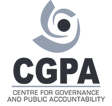PRESS RELEASE
Funds analysis: Study suggests revision of education budget allocation method
A study conducted by the Center for Governance and Public Accountability (CGPA), Peshawar on the current education budget for Peshawar district has suggested changes in the overall mechanism of allocation of funds.
Financial years 2009-2010 to 2012-2013 were analysed for the purposes of the study, stated a press release.
There is a need for active involvement of beneficiaries of education services like parents and civil society groups, in finalising the education sector budget, it said.

The concept of school-based budgeting according to demands of each school, conveyed through parent-teacher associations or management bodies was also discussed in the analysis. It said customized budget should be allocated, depending on the performance of each school that is measured through certain performance indicators.
A need for increase in operating expenses of schools is also mentioned in the study, which claims that the current budget is not sufficient for creating an environment conducive for education in schools across the district. To create an education friendly environment, the analysis says, funds should be set aside for teaching material and toys for children that encourage learning.
The study notes that the present trend in the education budget points towards less emphasis on girls’ education, which causes further marginalization of women in society. It is therefore essential that the budget for girls’ elementary and secondary schools be increased.
An overall increase in the allocation of budget for primary schools is also advocated for as it notes that despite the usual belief that primary schools are more resource-intensive, the contrary has been observed for Peshawar district. The study recommends that the salary and qualification of primary school teachers should be comparable, if not more, with secondary schools.
It is also suggested that in order to make the budget more efficient, comparative analysis of budgets of private schools with public schools be carried out to see why private schools are often able to impart better education with lesser funds.
